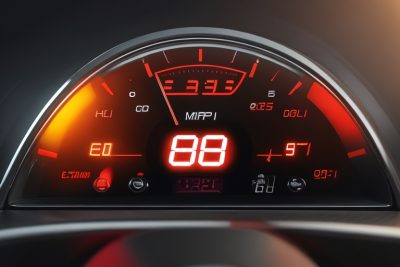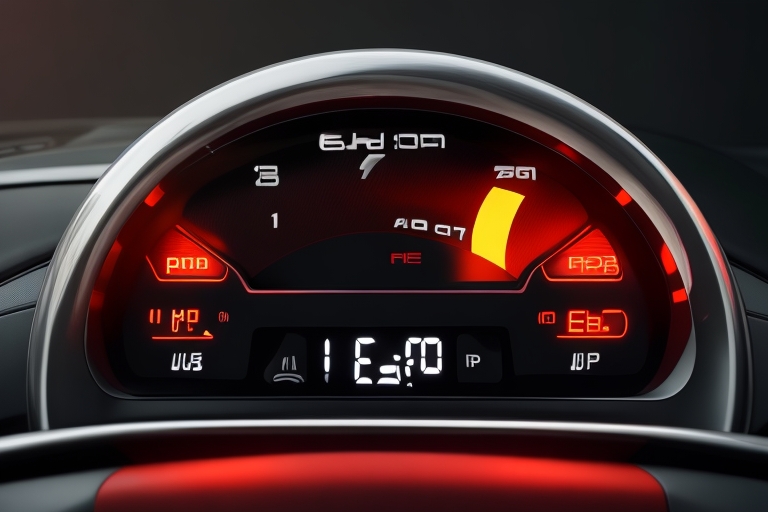Are you clueless about what on earth MPG stands for? Well, fear not! MPG, short for Miles Per Gallon, is a game-changer in the world of cars.
It’s a nifty little measurement that tells you how far your vehicle can go on just one precious gallon of fuel. The higher the MPG, the more efficient your ride is.
So buckle up and get ready to learn all about the importance of MPG and how it can save you some serious cash at the pump.
Key Takeaways
- MPG stands for Miles Per Gallon.
- MPG is the primary measurement of a car’s fuel efficiency.
- The EPA provides three different MPG ratings for each vehicle: highway MPG, city MPG, and combined MPG.
- MPG is used to compare the fuel efficiency of different vehicles.

The Definition of MPG
Now let me explain to you the current definition of MPG, which stands for Miles Per Gallon.
MPG is a measurement used to determine the fuel efficiency of vehicles. It indicates the distance a vehicle can travel on one gallon of fuel. It’s commonly used to compare the fuel efficiency of different vehicles. Higher MPG values indicate better fuel efficiency.
Factors like traffic, weather, and terrain can impact MPG. Vehicle weight and aerodynamics also play a role in determining MPG. The size and type of engine affect the fuel efficiency of a vehicle.
Proper maintenance, including tire pressure and oil changes, can improve MPG. On the other hand, driving habits such as speeding and aggressive acceleration can decrease MPG.
Importance of MPG in Fuel Efficiency
You should take into account the significance of MPG in fuel efficiency because it directly impacts your vehicle’s performance and cost of fuel.
MPG, or Miles Per Gallon, measures the distance your car can travel on one gallon of fuel. It’s the primary measurement of a car’s fuel efficiency and is certified by the U.S. Environmental Protection Agency (EPA).
Higher MPG values indicate better fuel efficiency, which means you can save money on fuel costs and reduce greenhouse gas emissions. Factors like traffic, driving habits, and vehicle maintenance can affect your MPG.
When shopping for a new car, consider the MPG ratings of different models to find a more fuel-efficient vehicle.
Converting MPG to L/100km
To convert MPG to L/100km, divide 282.5 by the car’s MPG.
This conversion allows you to compare fuel efficiency measurements used in different countries.
MPG, or Miles Per Gallon, is a common measurement used in the United States to determine how far a car can travel on one gallon of fuel.
On the other hand, L/100km, or Liters per 100 kilometers, is used in Europe to measure fuel efficiency.
By dividing 282.5 by your car’s MPG, you can easily calculate the equivalent L/100km value.
This conversion is helpful when comparing the fuel efficiency of different cars or when traveling between countries that use different fuel efficiency measurements.
Calculating Fuel Economy
If you want to calculate your fuel economy, divide the miles traveled by the gallons of fuel used. This simple calculation will give you a clear understanding of how efficiently your vehicle is using fuel.
Monitoring your fuel economy is important because it allows you to track your vehicle’s performance and make adjustments if needed. By keeping an eye on your fuel economy, you can identify any changes that may indicate a problem with your car, such as a decrease in efficiency.
Additionally, calculating your fuel economy can help you make informed decisions about your driving habits and vehicle maintenance. So, take a few moments to calculate your fuel economy and see how efficiently your car is running.
Tips for Improving Fuel Efficiency
When it comes to improving fuel efficiency, it’s important to regularly maintain your vehicle and keep the tires properly inflated. By doing so, you can maximize your MPG and save money on fuel costs.
Make sure to follow the manufacturer’s recommended maintenance schedule and get regular oil changes. Keeping your tires properly inflated can reduce rolling resistance and improve your MPG.
Additionally, try to minimize unnecessary weight in your vehicle, as this can affect fuel efficiency. Planning your journeys in advance and avoiding unnecessary acceleration and braking can also help improve your MPG.
Remember to use cruise control on highways to maintain a consistent speed. By implementing these tips, you can make a positive impact on your fuel efficiency and reduce your carbon footprint.
Frequently Asked Questions
How Does Driving Style Affect Mpg?
Your driving style can significantly affect your MPG. Aggressive acceleration, speeding, and frequent braking decrease fuel efficiency. Maintaining steady speeds, avoiding unnecessary acceleration and braking, and practicing fuel-efficient driving habits can improve your MPG.
Are There Any Other Factors Besides Engine Size and Weight That Affect Mpg?
Various factors, beyond engine size and weight, impact MPG. Driving style, maintenance, terrain, and weather conditions all affect fuel efficiency. Consider these factors when evaluating a vehicle’s MPG and making comparisons.
What Is the Difference Between Highway MPG and City MPG?
The difference between highway MPG and city MPG is based on driving conditions. Highway MPG represents fuel efficiency during steady, high-speed driving, while city MPG reflects fuel efficiency in stop-and-go traffic.
How Accurate Are the MPG Ratings Provided by the Epa?
The EPA’s MPG ratings are generally accurate but may vary in real-world driving conditions. Factors like traffic, weather, and driving habits can impact actual MPG. Consider them as a guide for comparing fuel efficiency.
How Can Vehicle Maintenance Impact Mpg?
Proper vehicle maintenance, like maintaining tire pressure and getting regular oil changes, can improve your MPG. It’s important to keep up with maintenance to maximize fuel efficiency.
Conclusion
So there you have it, now you know what MPG stands for and why it’s so important.
The irony is that while MPG is crucial for fuel efficiency and reducing emissions, it also highlights our dependence on fossil fuels.
Perhaps one day we’ll see a world where MPG becomes a thing of the past, replaced by more sustainable transportation options.
But for now, let’s strive to make the most of our MPG and continue working towards a greener future.
